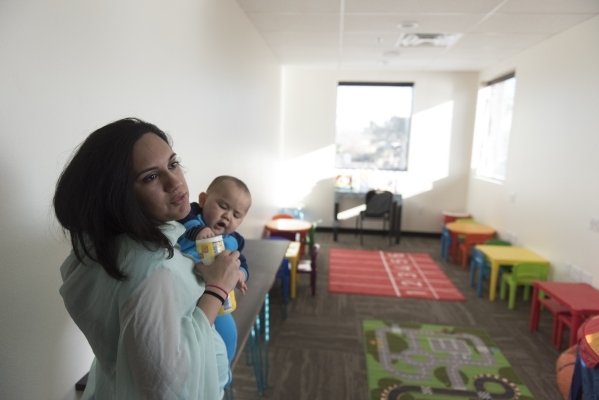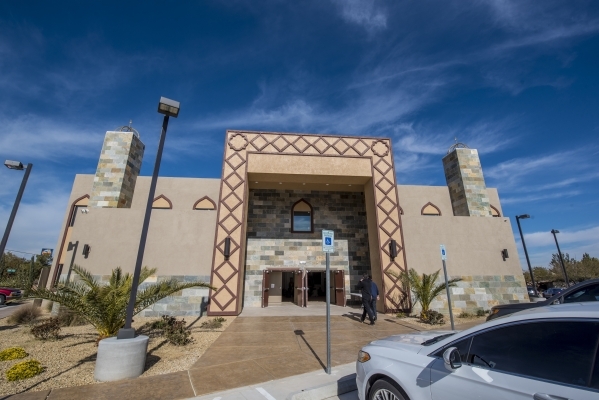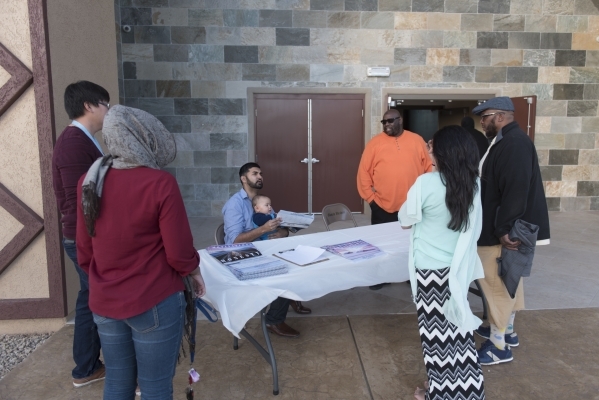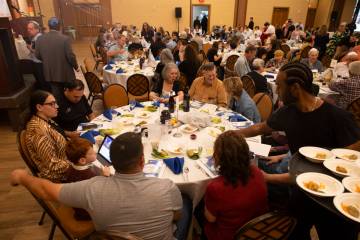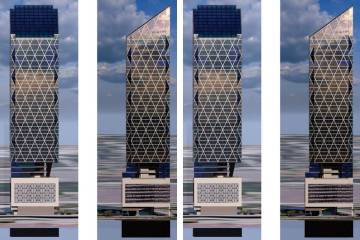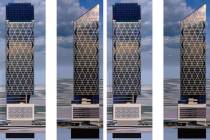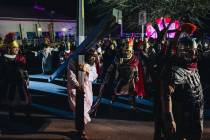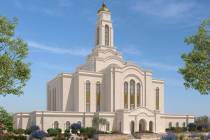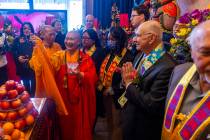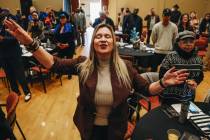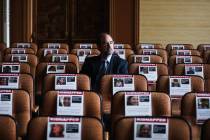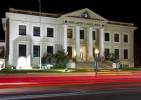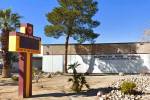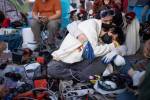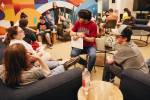Local woman opens mosque to serve neighbors as well as Muslims
Sharaf Haseebullah is hosting a housewarming party, mingling with and accepting congratulations from family members, friends and even a few strangers whom she hasn't met but who, upon meeting Haseebullah, probably will become friends before long.
And that the housewarming party is celebrating the opening of Masjid Ibrahim, 3788 N. Jones Blvd., the mosque that she financed herself, doesn't alter the party vibe a bit.
"It is like done, what you call, a lifetime dream," a smiling Haseebullah says. "It is the final accomplishment."
Dr. Aslam Abdullah, director of Masjid Ibrahim, says it is the first mosque in the United States to be financed and built by a Muslim woman. But, on this late January afternoon, historic distinctions seem to be of only secondary importance to Haseebullah.
More important — and what's making Haseebullah smile so broadly— is watching a years-long dream become brick-and-mortar reality.
"I'm really excited," she says with a laugh. "This is mission accomplished."
Like any mosque, Masjid Ibrahim will be a place for Muslims to pray and practice their faith. But, from the start, Haseebullah has envisioned Masjid Ibrahim to also serve as a community center where residents of the neighborhood — residents of any faith — can make use of computers, learn how to write resumes and learn about potential careers, and where children can drop by after school for homework help.
Sharaf Haseebullah and her husband, Syed, were raised in Pakistan and immigrated to the United States in 1975. Both became registered pharmacists and moved from Chicago to Las Vegas in 1990, where they opened Raxo Drugs Inc., a pharmacy at 3199 S. Eastern Ave.
"But I'm a real estate investor also," Sharaf says. And, son Athar adds, a "savvy" one.
"If there was not at least a 15 percent return, she was not interested in it," Athar says.
In 1995, the couple purchased an almost-one-acre parcel of land near North Rancho Drive and North Jones Boulevard. The property contained a rundown house, and the Haseebullahs thought that they might build a pharmacy there. Instead, they turned the house into a place of prayer for themselves and a few friends.
Over time, the number of people joining them for prayers increased and the home "became a mosque unintentionally," Athar says.
After Syed Haseebullah's death in 2005, Sharaf Haseebullah was inspired to invest her savings into building a new, larger mosque on the site.
"She came up with the plan to try to construct a building," Athar Haseebullah says. "She wanted to make it a new facility. She wanted to be the first woman to (build) a facility, and wanted my sister and I to run it."
In 2012, construction began on the 7,000-square-foot mosque, which cost about $3 million to build and which was financed entirely by Sharaf Haseebullah.
"From the ground up," she says, smiling. "Nobody's money (went into) here. This is my money, and there are no fundraisers, no donations, no nothing."
The facility contains a prayer room, a kitchen, a meeting room, a children's play room, office and classroom spaces and a computer room. There also will be a library containing "a lot of Islamic literature," says daughter Saira, who, like her brother, is an attorney, a Southern Nevada native and a graduate of Bishop Gorman High School.
"We'll have the Quran in English and Spanish translation, but we also want a lot of secular materials," she says, including job guides and reference materials that schoolchildren can use in doing homework.
Also available will be materials that can help neighborhood residents to learn English. "One of the things my mom noted when she came to America is, she had trouble learning English, and job interviews, unless you know English, are pretty difficult," Saira says.
Sharaf Haseebullah considers hard work and education keys to success, and says education changed her own life. And, she says, "if you don't have computers, if you don't have online (access), you can do nothing. So when (children) come home from high school, they can do homework, they can use the computers."
The mosque also features such technological touches as TV screens in most of its rooms that will allow attendees to watch and listen to prayers from the prayer room from wherever they are.
"What's funny is, my mom was the one on all of that," Saira says, even though "she doesn't actually use technology very much. She doesn't Facebook and doesn't text people, but she wanted to insist that we are using every possible advantage we can."
Masjid Ibrahim's opening weekend activities included its inaugural midday prayer service on Friday, which was attended by about 75 people, and a Saturday afternoon event at which neighborhood residents were invited to stop by to meet the Haseebullahs and tour the building.
A woman who arrived with two other neighborhood residents — none of whom wanted to be identified — said they stopped by because they "just want to know what's going on."
None had visited a mosque before. As Saira showed the mosque's prayer room to another visitor, a member of the group asked whether it's true that Muslim men and women must pray separately. Saira explained that while that may be true at some mosques, and that some mosques may position women and men on opposite sides of the same room, men and women at Masjid Ibrahim may pray in the same room at the same time.
Saira added that some women may feel more comfortable praying in an adjoining room, watching prayers on a TV screen. The residents, having learned something new, then took Saira up on her offer of a tour.
Athar Haseebullah says he waited throughout the construction process for negative reactions to pour in. But, he says, none did.
"I think so far response has been very good," agrees Abdullah, adding that Masjid Ibrahim makes Las Vegas the first city "in North America and Europe where a mosque has been built by a Muslim woman."
Interesting, too, is that the mosque is opening at a time when anti-Islamic sentiment has become a heated issue in the U.S. presidential campaign.
"We are in a unique space because we are American Muslims, and that comes, at this point especially, with a lot of baggage, one might say," Athar Haseebullah says. "You are hearing different things from everyone about what or what not Islam means and what does it mean to be a Muslim.
"Well, there's no exact definition. It's much like any other faith. You're going to have good guys and bad guys and bad guys who think they're good guys and good guys who are bad guys. Our goal here is to uplift the community, serving the community and trying to provide hope and spiritual guidance to those who need it."
Sharaf Haseebullah says she fears no backlash — for instance, the graffiti and vandalism seen at other mosques, including in Southern Nevada — for creating her life's dream.
"My faith is really strong," she says. "I never fear if something happens. Let them come. But what they cannot do is, they cannot change my life."
"This is not for me," she adds. "This is for generations to come."
— Read more from John Przybys at reviewjournal.com. Contact him at jprzybys@reviewjournal.com and follow @JJPrzybys on Twitter.





